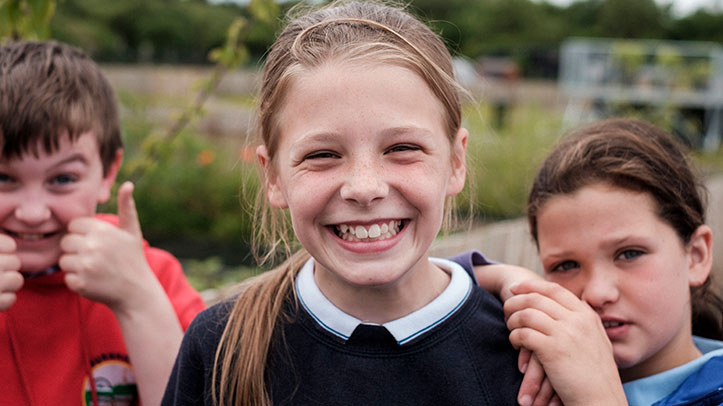WITH an estimated 23.4 million people unable to afford the cost of living*, this is a time of deepening challenge and crisis not just for adults, but also for children and young people. Many families are facing rising costs and youngsters are experiencing increased anxiety and worry las a result, leading to an upsurge in children’s’ mental health worries.
Children will be affected by stresses and strains on their parents and other family members as much by stressors directly on themselves. It’s important to recognise that as a parent you can only to a limited extent ‘protect’ your kids from your stresses as they will pick up on the negative cues. With something like the COL crisis, they will not be able to avoid it due to it being featured so prominently and even if as a family you are managing economically, others in their schools may not for example. Also, kids can pick up on and be affected significantly by issues in the news recent examples being of course COVID, the Ukraine war and now the COL.
Psychotherapist Noe McDermott comments: “Talk to your children about how they’re feeling about the cost-of-living crisis might impact them, reassure them it’s okay to ask for help if they feel low. Explain it’s normal and natural but that they don’t have to suffer alone. Monitor for signs they are struggling by watching out for mood, presentation or behaviour changes that last longer than a day or two. Increase family time and family events to be able to lift each other up and observe your kids at work and play.”
As with all these types of issues hoping you can shield your kids is ineffective as a strategy and you are best advised to deal with the issues openly, discussing as a family how it is affecting yourselves. Problems are always worse when imagined rather than faced and managed and as a family that is very true right now. Think about opening up the conversation by references to a news item for example, or if as a family you have shared meals, maybe begin a chat at that point. Ask for your kids to share their thoughts and feelings about themselves, their worries about the family and their friends. Listen without judgment and with lots of validation.
How to spot anxiety in children. Some children will be experiencing:
- more vivid dreams during this time
- interrupted sleep
- issues around appetite and so-on which are all classic signs of distress
- easily angered or irritable
- finding it hard to concentrate
It’s important to think about the wider health and psychological health impacts as we predict the COL will ease through the year and into next year and it would be unfortunate to be left with a significant legacy of psychological ill health. The key issues to think about are stress management and adding health into your daily routine. Think body chemistry or hormones – some make us feel rubbish (stress hormones such as adrenaline and cortisol) and some make us feel good such as dopamine, oxytocin, serotonin, endorphins (DOSE). It’s hard, if not impossible to overstate the positive health impacts of learning better management techniques around inappropriate stress hormone production. The other side of it is learning how to DOSE yourself up on reward hormones which positively improve your global health functioning.
How to DOSE Yourself Up on Reward Hormones
- D- dopamine, gives you a feeling of wellbeing, happiness, and motivation. It can be activated in most pleasurable social situations, such as a good night’s sleep, eating a nice meal, going for a walk or other exercise, listening to music, hanging out with friends, getting sunshine, engaging with nature and even by stroking pets.
- O- oxytocin, promotes strong emotional and relational bonds, gives you a feeling of being loved up – the core of our social animal nature, improves mood and is now looked at as a treatment for social phobia, autism, posy-partum depression, anxiety, and depression. You get it from being physically close to those you love! Men and women produce it slightly differently as men can optimise production of the hormone in different behaviours with both sexes getting a boost from say holding hands and kissing (go kiss more!!), but men can get it from simulated competitive ‘battle’ with other men leading to a big release of loved up feeling when you survive.
- S- serotonin, is a well-known term because of the common use of SSRI’s selective serotonin re-uptake inhibitors or Prozac or fluoxetine as it is more generically known in the UK. Serotonin regulates mood and manages depression and anxiety. It improves happiness and wellbeing, and this has a global health improvement impact. Great ways to get some include sunshine and in general a good amount of bright light (you can use a ‘daylight’ or anti depression lamp), exercise that fatigues you (serotonin is produced in this type of fatigue to help you recover), eating healthy foods with good protein (plant based) and those less intensively farmed (wild food often has higher sources of the amino acids that help serotonin production).
- E- endorphins, our natural pain killers! Nothing like naturally produced opiates to feel good! Endorphin is literally a combination of endogenous (from the body) and morphine, naturally occurring morphine has the impact of giving us an amazing sense of wellbeing. Again, a sense of wellbeing is evidenced to improve global health outcomes including improved physical health, social health, economic health, and relationship health. For pain relief also use stress relief as both states are the same in terms of health and wellbeing. Endorphins are a super stress buster. Here’s some of the stuff that produces endorphins: vigorous exercise is the most well-known, but also laughing, dark chocolate because of flavonoids and spicy foods which stimulate pain responses in the mouth. Yoga and meditation also produce endorphins – it all sounds like a lot of fun!
If we focus on the chemicals that make us feel good and reducing the chemicals that make us feel rubbish, we reduce long term illness and improve short term wellbeing. So, DOSE up your life as a family: Close on the heels of fun is healthy, is understanding how we can give ourselves positive hormonal boosts d-opamine (rewards prosocial activities improves motivation) o-xytocin makes you feel loved up after a cuddle, s-erotonin improves mood after getting some sun or having a walk in the park, endorphins make you feel great after strenuous activities such as a game of footie. Kids love getting this sort of knowledge and maybe if they are younger, you can do a hormone treasure map for example showing how and where in home and the local area they can get their fix of each hormone.


















